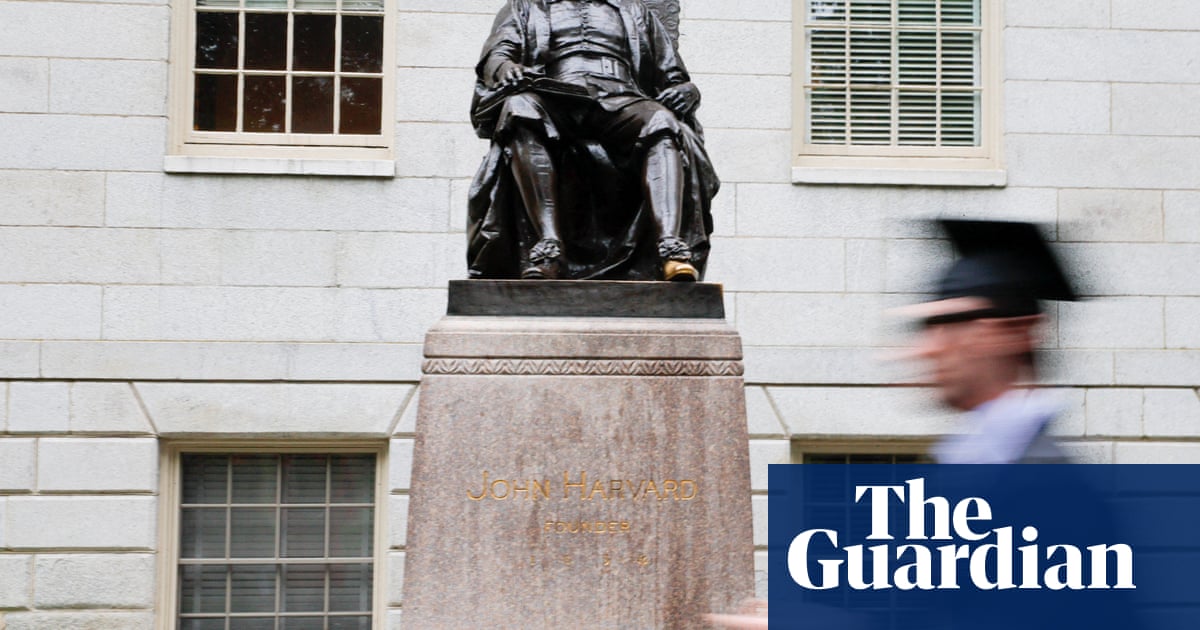The article presents a significant development regarding the Trump administration's approach to foreign student visas at Harvard University. It highlights a proclamation signed by President Trump aimed at restricting these visas, which appears to be a continuation of ongoing tensions between the administration and the academic institution. This situation raises questions about the underlying motives and potential implications for various stakeholders.
Motivation Behind the Announcement
This move seems to be a strategic response to Harvard's legal actions against the administration regarding funding cuts. By targeting foreign student visas, the administration might be attempting to exert pressure on the university to comply with its demands for reforms. The proclamation can be seen as a political maneuver designed to showcase the administration's commitment to prioritizing American interests, particularly in the context of national identity and values.
Public Perception and Messaging
The White House's statement that Trump wants foreign students who can "love our country" suggests an effort to frame the narrative around immigration and patriotism. This language may resonate with certain voter demographics who are concerned about national identity and the perceived impacts of immigration. The proclamation could create a polarized response, with supporters viewing it as a necessary measure and opponents seeing it as an attack on academic freedom and diversity.
Potential Concealments or Distractions
By focusing on the proclamation, the administration might be diverting attention from other pressing issues, such as the ongoing pandemic or economic challenges. The significant legal battles between Harvard and the administration have broader implications for research funding and academic autonomy, which might be overshadowed by the more sensational aspect of visa restrictions.
Analysis of Manipulative Elements
There are clear manipulative elements in the framing of this news. The language used suggests a dichotomy between "loyal" foreign students and those who may not align with the administration's vision of American values. This could potentially incite fear or distrust towards foreign students in general, fostering a more insular view of education.
Truthfulness of the Information
The article appears to be based on factual developments regarding the proclamation and the ongoing tensions between Harvard and the Trump administration. However, the way the information is presented may lean towards a specific agenda, influencing how readers interpret the significance of these events.
Impact on Society and Economy
The proclamation could have far-reaching effects on higher education, international student enrollment, and research funding at Harvard and beyond. This action may deter prospective international students from applying to Harvard, potentially impacting the university's reputation and financial stability. Furthermore, it could provoke legal challenges that draw further attention to the administration's policies.
Target Demographics
The messaging in this article is likely to resonate more with conservative and nationalist groups who prioritize American identity and are skeptical of immigration. On the other hand, it may alienate academic institutions and progressive communities that value diversity and global collaboration.
Market Implications
In terms of market impact, education-related stocks, particularly those tied to international enrollment, could be affected. Companies that rely on foreign students for tuition or services might see fluctuations in their share prices as a result of this announcement.
Geopolitical Context
While this news primarily concerns domestic policy, it reflects broader trends in U.S. immigration and education policy that could influence international relations, especially regarding countries that send students to the U.S. The administration's stance could complicate diplomatic relationships with nations that value educational exchange.
AI Usage in Article Composition
It is possible that AI tools may have influenced the writing style of this article, particularly in how the information is structured and presented. While the core facts are likely derived from legitimate sources, the framing and emphasis on certain phrases could suggest a deliberate attempt to guide reader sentiment.
In conclusion, while the article presents factual elements regarding the proclamation, the framing and language employed may serve to manipulate public perception and distract from broader issues. The implications of this announcement could resonate across various sectors and demographics, establishing a complex narrative in the context of U.S. education and immigration policy.
